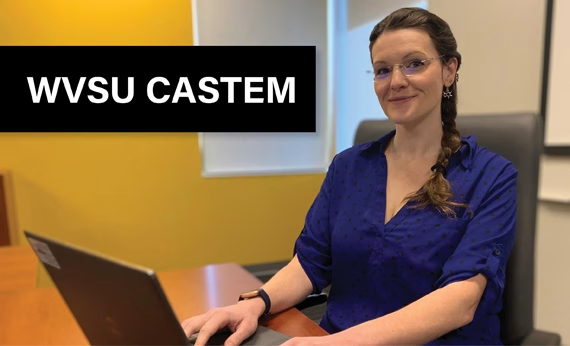Contact: Jack Bailey (304) 766-4109 jbaile19@wvstateu.edu
INSTITUTE, W.Va. – Last year, West Virginia State University’s (WVSU) Center for the Advancement of STEM (CASTEM) shifted face-to-face youth science outreach efforts to the virtual arena in the wake of the ongoing COVID-19 pandemic, rolling out multiple virtual STEM programs that targeted middle and high school students from rural and underserved regions of the state. It’s a programmatic shift that is proving successful.
Since the pandemic began in March 2020, WVSU CASTEM programs have reached middle and high school students in 13 counties with immersive virtual experiences. Participants have reported a 40% increase in STEM knowledge and content, a 74% increase in STEM engagement outside of the class, and an 82% increase in their interest in pursuing STEM careers.
“The virtual format has gone really well so far,” said Hannah Payne, director of WVSU CASTEM, whose mission is to help West Virginia students increase their STEM confidence, work on skills needed for success as a STEM major in college, and expose students to STEM pathways. “Our virtual programs launch with an orientation, have an interactive classroom space where they can watch their videos for the lessons and complete their challenges, and then live office hours where they can talk to the professors.”
WVSU CASTEM is currently partnered with the West Virginia Department of Environmental Protection (WVDEP) Project WET (Water Education Today) program for a virtual STEM camp covering aspects of water quality and management. Twenty students in grades 6 through 9 are learning about watershed design, management, connection and aquatic life over the course of five weeks. The program features opportunities for interactivity and hands-on learning, such as making home watershed models with materials sent to participants via mail. Another camp will launch in March with the WVDEP Youth Environmental Program, called Environmental Superheroes, anticipated to reach nearly 30 third and fourth graders.
“Once the classes launch, we have had excellent program partners in combination with best practice approaches that have made for nice virtual experiences,” Payne said. “Since shifting our approach, we have partnered with NASA West Virginia Space Grant Consortium, TI Texas Instruments, DEP Project WET and DEP Youth Environmental Program with virtual programming that has really allowed us to expand our reach statewide.”
With COVID-19 rates decreasing, and the state’s vaccination rate rising, WVSU officials are cautiously optimistic of eventually resuming in-person outreach education. In the meantime, WVSU CASTEM will be offering several virtual STEM camps this summer, which will be announced in April.
Follow on Facebook and Twitter .

West Virginia State University Youth STEM Camps Adjust to Pandemic Realities
March 5, 2021